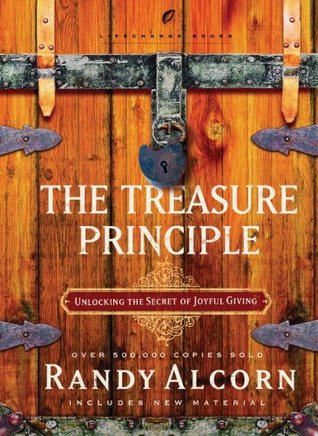More on this book
Community
Kindle Notes & Highlights
by
Randy Alcorn
Read between
November 12 - November 23, 2019
The parable of hidden treasure is one of many references Jesus made to money and possessions. In fact, 15 percent of everything Christ said relates to this topic—more than His teachings on Heaven and Hell combined.
Because there’s a fundamental connection between our spiritual lives and how we think about and handle money.
Our approach to money and possessions is central to our spiritual lives.
He planned to store up for early retirement and easy living. But God called the man a fool (Luke 12:20). The greatest indictment against him—and the proof of his spiritual condition—is that he was rich toward himself but not rich toward God.
No. Because they won’t last.
Storing up earthly treasures isn’t simply wrong. It’s just plain stupid.
Selfish people pursue gain at others’ expense. But God’s riches are infinite. When you serve Him and others, you store up treasures in Heaven. This doesn’t reduce the treasures available to others. Everyone gains; no one loses.
The man who finds the buried treasure pays a high price now by giving up all he has—but soon he’ll gain a magnificent treasure.
You can’t take it with you— but you can send it on ahead.
So, when Jesus spoke about storing up treasures in Heaven, was He really talking about giving away our earthly treasures to help the needy? My answer is yes, for three reasons: (1) the immediate context, (2) the clear wording of Matthew 19:21, and (3) two more parallel passages in the other Gospels and one of Paul’s letters. These make it emphatically clear that giving away money and possessions is exactly what Jesus was talking about.
There’s no ambiguity here: Taking money and possessions we could have stored up for ourselves on Earth and instead giving them to the poor is how we store up treasures in Heaven.
As we’ve seen, there’s overwhelming interpretive evidence as to the meaning of Matthew 6:19–21, not just in its immediate context, but also in the parallel passages in Matthew 19; Mark 10; Luke 12; and 1 Timothy 6. Together, they confirm that storing up treasures in Heaven means giving generously to kingdom causes and receiving God’s rewards for doing so.
Instead, it calls us to radical acts of generosity.
God owns everything. I’m His money manager.
One day a distraught man rode his horse up to John Wesley (1703–1791), shouting, “Mr. Wesley, something terrible happened! Your house burned to the ground!” Wesley weighed the news, then calmly replied, “No. The Lord’s house burned to the ground. That means one less responsibility for me.”
Our name is on God’s account.
We see the enthusiasm, the growth, the kingdom-mindedness, the changed priorities of people young and old. We pray that those who go—and those to whom they go—will never be the same. And we will have had a part in it!
“Out of the most severe trial, their overflowing joy and their extreme poverty
welled up in rich generosity” (2 Corinthians 8:2).
Giving isn’t a luxury of the rich. It’s a joyous privilege of the poor.
do to you. God uses giving to conform us to His image. Gaze upon Christ long enough and you’ll become more of a giver. Give long enough and you’ll become more like Christ.
“When I give, I feel His pleasure.”
Investor T. Boone Pickens talked about how good it feels to give. He said, “I was put here to make money so I could give it away.”8
You could never pay givers enough to convince
them not to give.
“Apart from faith in Christ, there is no explanation for such a life.”
Rewards are God’s idea, not ours!”
Giving is a giant lever positioned on the fulcrum of this world, allowing us to move mountains in the next world. Because we give, eternity will be different—for others and for us.
Many Christians dread the thought of leaving this world.
“Well, Mr. Wesley, what do you think?” Wesley replied, “I think you’re going to have a hard time leaving all this.”
My heart always goes where I put God’s money.


